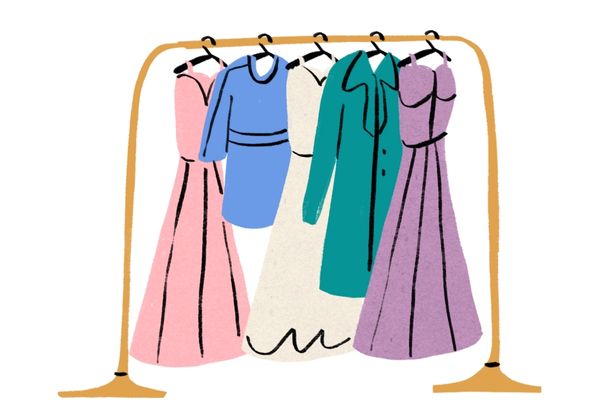
Deadline: 12-Dec-22
The United Nations Educational, Scientific and Cultural Organization (UNESCO) is accepting Expression of Interest (EOIs) from interested institutions/organizations that can develop and conduct a multi-stakeholder survey in order to collect qualitative and quantitative data on the main trends, challenges and opportunities faced by the fashion industry in Africa.
This call aims to produce an analysis of the results and present them in a consolidated report, which will be published in the framework of the work conducted by UNESCO on cultural and creative industries and in line with the Organization’s Global Priority Africa.
In view of fostering dynamic creative industries in developing countries, UNESCO has launched an exploratory study, aiming to map the fashion industry in Africa and provide a detailed and accurate assessment of its current state of development. The fashion and textile industry is the second-largest sector after agriculture in Africa, with an estimated market value of $31 billion in 2020 and growing every year, with the potential of creating jobs for millions across the continent, especially for women and youth. Despite this sustained growth, some critical issues such as lack of investment and infrastructure, weakness of vocational training, difficulties accessing new markets and challenges linked to ecological factors are affecting the sector’s sustainable development.
Objectives
- On the basis of a UNESCO exploratory study and with the main objective to produce a UNESCO report on the fashion industry in Africa, the selected institution/organization will be responsible for developing and conducting an online survey on the African fashion, textile and accessories sector, in order to collect relevant data and information from UNESCO’s Member States in Africa, relevant professional organizations, international/regional cooperation organizations, and experts.
- In addition, the selected institution/organization is expected to undertake an in-depth analysis of the survey responses in order to produce pertinent data and information on the sector’s current status and future development opportunities.
- Based on this analysis, the selected institution/organization will be drafting a comprehensive final narrative report, which will include the following:
- mapping the main trends, challenges, needs and priorities for the fashion industry in Africa, at the sub-regional, national or local level, as relevant,
- highlighting the main opportunities and perspectives that could contribute to the sustainable and inclusive growth of the fashion industry in Africa,
- outlining areas for policy action, together with concrete recommendations to accompany national and/or local decision-makers in the implementation of tailored policies and initiatives for the sustainable development of this strategic sector.
- Throughout the assignment, due consideration should be given to every step of the value chain, from design to production and distribution, as well as to the employment of women and youth in the sector. The report should be written in a clear and concise manner for an informed audience, avoiding jargon or specialized terminology.
Scope of Work
The selected institution/organization will be undertaking the following tasks, between December 2022 and May 2023:
- Carry out a multi-stakeholder consultation on the African fashion, textile, and accessories sector, which includes the development and wide dissemination of an online survey addressed to UNESCO Member States in Africa, as well as relevant professional organizations, international/regional cooperation organizations, and experts,
- The survey, which will be developed in close cooperation with UNESCO, will aim to collect statistical information, key indicators, and all other relevant datapoints in areas where they are currently lacking, such as:
- The size of the fashion industry (e.g. employment rates, revenue generated, number of local fashion brands or businesses, number of fashion events organised),
- The existing institutional and regulatory frameworks, public policies and measures that have been implemented to support the development and governance of the fashion sector,
- The availability of financing mechanisms (public and private) in place to support the creation and investment needs of designers and entrepreneurs,
- The state of women’s participation and representation in the industry, as well as measures or programmes implemented in countries to promote gender equality and facilitate the participation of women across the different activities of the fashion value chain,
- The number of textile and garment manufacturing and processing plants (e.g. spinning mills, dyes, looms, weaving facilities) that are currently in operation or defunct,
- The availability of training and education opportunities (e.g. number of accredited institutions, training courses, higher education degrees) as well as specific curricula that cover particular areas of fashion education from sewing and design to marketing and business management.
- Analyse the survey responses and produce pertinent qualitative and quantitative data on the fashion industry in Africa through these responses, which may also be visualized as diagrams, charts, graphs, etc.,
- On the basis of the exploratory study conducted by UNESCO and the data collected through the survey, elaborate a draft narrative report on the fashion, textile and accessories sector in Africa, highlighting innovative or inspiring initiatives and outlining concrete recommendations for policy makers in order to support the sector’s future development, in line with the objective set forth above,
- In accordance with UNESCO’s comments and feedback, review the draft narrative report, which will be finalized and published as an official UNESCO report on fashion industry in Africa.
Eligibility Criteria
The selected institution/organization should have the following qualifications:
- proven knowledge and networking experience in the fashion, textile, and accessories industry in Africa,
- solid experience in international research and analysis of cultural policies and/or cultural industries or in other related fields,
- ability to collect and analyse information from various resources in English and French,
- excellent writing skills and proven competency to draft a clear, comprehensive and analytical document, either in English or French.
For more information, visit https://en.unesco.org/creativity/news/call-expression-interest-unesco-report-fashion-industry